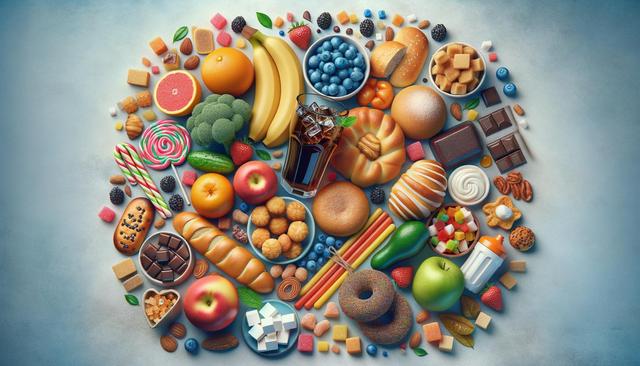Understanding the Impact of Carbohydrates
Carbohydrates have the most direct impact on blood sugar levels, which makes monitoring them essential for individuals managing diabetes. Not all carbs are created equal—while complex carbohydrates from whole grains and vegetables can be part of a healthy eating plan, simple and refined carbs tend to cause rapid spikes in blood glucose. Foods like white bread, pasta made from refined flour, and many breakfast cereals fall into this category. These products are often stripped of fiber and nutrients, leading to quick digestion and a subsequent rise in blood sugar.
For those with diabetes, it’s helpful to:
- Choose whole grains like brown rice or quinoa over white rice.
- Avoid sugary cereals and opt for oatmeal without added sugar.
- Be cautious with portion sizes, even of healthier carbs.
Being mindful of carbohydrate types and their glycemic index can help in keeping blood sugar levels within a healthy range.
Sugar-Sweetened Beverages and Hidden Sugars
One of the most critical dietary changes for managing diabetes is cutting back on sugar-sweetened beverages. Drinks like sodas, sweetened teas, and specialty coffee drinks can contain large amounts of added sugars with little to no nutritional value. These beverages can cause rapid blood sugar spikes and contribute to insulin resistance over time.
Common beverages to avoid include:
- Regular sodas and energy drinks
- Sweetened iced teas and lemonade
- Flavored coffee drinks and milkshakes
Additionally, be aware of hidden sugars in foods where you might not expect them, such as sauces, condiments, and packaged snacks. Reading nutrition labels and ingredient lists can help identify added sugars, which are often listed under various names such as high-fructose corn syrup, cane sugar, or dextrose.
Processed and Packaged Foods
Processed and pre-packaged foods often contain high levels of unhealthy fats, sodium, and refined sugars. While they offer convenience, they typically lack the nutrients needed for balanced blood sugar levels. Foods like frozen meals, snack cakes, and packaged cookies often have a high glycemic load and can negatively affect insulin sensitivity.
Items to watch for include:
- Packaged snack bars and cookies
- Microwavable meals with added sugars and preservatives
- Crackers and chips made from refined grains
Instead of relying on these quick options, consider preparing meals at home using fresh ingredients. This allows better control over what goes into your food and how it affects your blood glucose.
High-Fat Animal Products and Fried Foods
Although carbohydrates directly affect blood sugar, the type of fat in your diet can also influence diabetes management. Saturated fats, primarily found in animal products and fried foods, can worsen insulin resistance and contribute to heart disease—a common complication of diabetes. Foods such as fatty cuts of meat, full-fat dairy products, and deep-fried items should be limited.
Examples include:
- Fried chicken and French fries
- Sausages and bacon
- Full-fat cheese and ice cream
Opting for lean proteins like poultry, fish, legumes, and low-fat dairy, along with cooking methods like baking or grilling, can be a healthier alternative. Including unsaturated fats from sources like nuts, seeds, and olive oil may also support better blood sugar control.
Alcohol and Its Complex Effects
Alcohol can have unpredictable effects on blood sugar levels. Depending on the amount consumed and whether it’s taken with food, alcohol can either raise or dangerously lower blood glucose. For individuals taking insulin or other medications, the risk of hypoglycemia increases when alcohol is consumed without a proper meal.
Drinks that are particularly challenging for blood sugar management include:
- Mixed drinks that contain sugary sodas or juices
- Sweet wines and liqueurs
- Beer, which contains carbohydrates
If you choose to drink alcohol, it’s important to do so in moderation, always with food, and after consulting with a healthcare provider. Monitoring blood sugar more closely when drinking is a wise precaution to avoid unexpected lows or highs.




Leave a Reply